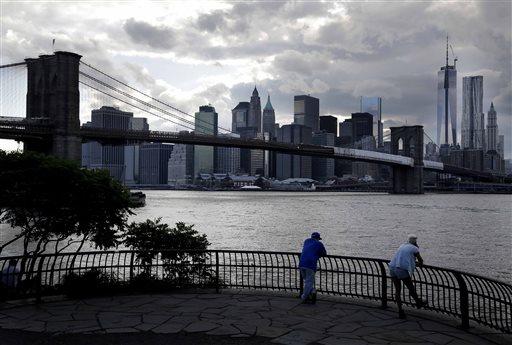New York City and the world needs entrepreneurs, because in today’s economic environment, “the stakes could not be higher,” said New York City Mayor Michael Bloomberg during a press conference at the 630 Flushing Incubator on Aug. 6 where business start-ups get support and resources.
Detroit, which recently declared the largest bankruptcy in U.S. history (measured by debt), could happen elsewhere, said Bloomberg.
He noted it almost happened in New York City in 1975. “While we have traveled a long way since then, we would be foolish to ignore the factors that drove Detroit to bankruptcy.”
Bloomberg said the city that brought us the assembly line and was “synonymous with industrial might” will be remembered in history as “a coda for an industrial era now past.”
Bloomberg contrasted Detroit’s failure to adapt, with New York’s adaptation in the way of investments in new manufacturing resources for technology entrepreneurs, such as incubators for start-ups.
I believe that the Detroit experience holds lessons for every American city, and that we have an obligation to protect our future by examining those lessons,” Bloomberg said.
Bloomberg said Detroit “was once an economic powerhouse,” due to large-scale manufacturing, but then manufacturing started moving in the 1950s to New York. This made New York the country’s capital for manufacturing jobs.
When manufacturing began to decline in New York, growth in the financial industry, and a few others such as real estate became New York City’s new economic core until the financial crisis in 2008.
Although the financial crisis shook the industries that the city was known for—particularly finance—New York bounced back quickly. Bloomberg said that today the city has more private sector jobs than any time in history.
Bloomberg said diversification was what lessened the blow from the financial crisis, and he said “diversification is essential to long-term growth and stability.”
Bloomberg said New York has become a manufacturing hub of a different kind—an incubator for entrepreneurs, “a new generation of craftsmen and women, who are making everything from furniture and fashion designs, to kimchee and cookies, to software and 3-D printers.”
“If you want to know what the future of American manufacturing looks like, this is it,” Bloomberg said.
Yet in order to not lose this industry again, Bloomberg said the city will need to keep investing in areas that benefit residents, lest “the virtuous cycle ... comes grinding to a halt, or worse, goes spinning in reverse.”
Highlighting Risks
For New York City, Bloomberg said “the risk is the same factor that was present in Detroit: the explosion in pension and health care costs.”
In 2002, New York City had $1.4 billion in pension costs, which rose to $6.3 billion by 2009.
“So this year, in addition to our $8 billion per year pension bill, we'll spend $6.3 billion on health insurance, almost double what it cost us when I first came into office,” he said.
Bloomberg blamed the unions, which have refused to settle on city agreements, and which have been a focal point in debates over pension and health care costs.
“When the union leaders say they don’t have a contract, they do,” he said. “But they are demanding new contracts with retroactive raises, going back three and four years, on top of the raises they’ve already gotten.”
He said the next mayor will have some leverage to bring to the table, since union leaders will have gone close to four years without new contracts, “which has never happened before. And they will not be willing to wait another four years for new contracts.”
“Avoiding the hard choices is how Detroit went bankrupt. And it is the road to ruin for any city,” Bloomberg said.





